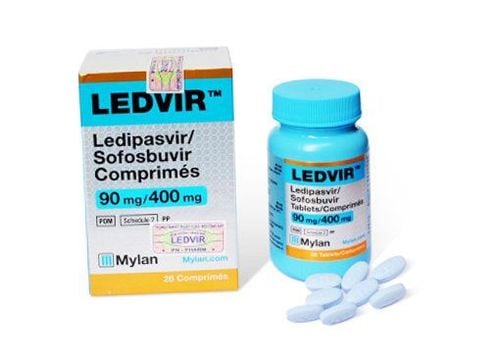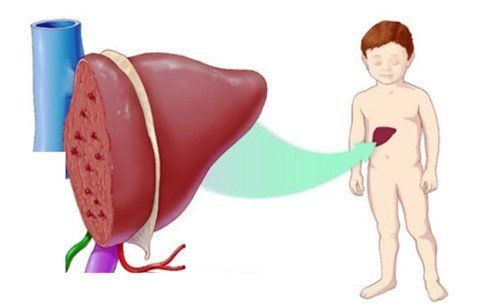This is an automatically translated article.
The article was written by Doctor Bui Thi Hang - High-tech Unit for Treatment of Cerebral Palsy and Autism - Vinmec Times City International General Hospital.
Most children with congenital biliary atresia require a liver transplant. Congenital biliary atresia is the most common indication for liver transplantation in infants and children. In current times, at least 60 to 80 percent of patients with congenital biliary atresia will require a liver transplant, even with optimal management.
1.Indications for liver transplantation for patients with congenital biliary atresia
Failure of bile duct drainage with Kasai surgery
+ Early referral to a liver transplant unit is recommended to assess the need for liver transplantation if total bilirubin > 6 mg/dL (100 micromol/L) persists after 3 months or more during biliary drainage surgery. The assessment of the need for liver transplantation should also be considered if total bilirubin persists from 2 to 6 mg/dL (34 to 100 micromol/L) for three months longer after ileostomy.
● Resistant growth retardation - An assessment of the need for liver transplantation should be considered for patients with moderate or severe growth retardation who are not responding to intensive, intensive nutritional support.

Complications of portal hypertension (if not treatable by other measures).
+ Repeated venous bleeding
+ Long-term ascites affecting respiratory, intestinal or renal function
+ Heppulmonaryngeal syndrome
+ Pulmonary hypertension
● Progressive liver dysfunction
+ Itching Intractable
+ Resistant coagulopathy
Among children under 2 years of age requiring liver transplantation: persistent stasis, recurrent cholangitis or drug resistance are the most common indications for liver transplantation.
Although the vast majority of children with congenital biliary atresia will require a liver transplant, there are many benefits to delaying transplantation because of the age and weight of the child. Results of liver transplantation in children with a weight > 10 kg will be better than those with a lower weight. Liver transplantation in children with persistent cholestasis may be delayed if the child is still growing and in stable condition.
Patients with congenital biliary atresia can receive a full or partial transplant from a deceased donor, as well as a partial liver from a living donor.
Poor nutrition is associated with increased mortality while awaiting or post-transplant. Therefore, robust nutritional support, including decongestant feeds, is essential in the pre- and post-operative care of these patients.
Please dial HOTLINE for more information or register for an appointment HERE. Download MyVinmec app to make appointments faster and to manage your bookings easily.
Articles refer to the source: update.com














